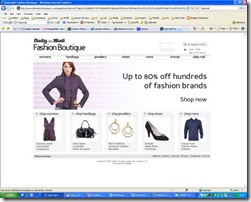
Mergers are really difficult transactions to bring about and even more difficult to make work post-merger.
The rewards for doing so properly and well can be significant.
In these times, we are likely to see a number of mergers taking place between companies which will find it really hard on their own to raise cash to lengthen their runways or for those for whom the commercial logic is overwhelming.
Looking back, one can see some mergers which had they not happened may well have led to the demise of both companies (or at least a protrated and far more capital intensive journey) whilst what emerged was a real powerhouse.
I'm thinking particularly of the Betfair and Flutter.com (remember them?)merger in December 2001. Current Betfair revenues in the order of £250m and PBT over £40m.
I'm also not forgetting the LoveFilm and VideoIsland merger of April 2006, creating Europe's dominant on-line DVD rental service now turning over some £70m profitably.

We will be encouraging TAG companies to look at their markets carefully and consider whether getting together creates more value for everyone in the long run.
The difficulties are - fairly obviously - a) arriving at relative values and
b) resolving the question of who runs the combined entity and how.
It takes some skill, no little suppression of ego, sensitivity and far sightedness to achieve a good result.
The benefits can be huge. Aside from rationalisation of overheads, marketing can be made so much more efficient and effective (less competition for those keywords, greater clickthrough rates from natural and paid search)and its far easier to do those all important business development partnerships.
Commentators need to focus more on what value has been created, rather than on who 'won' and who 'lost'. In the case of the great mergers, everyone's a winner.
![Reblog this post [with Zemanta]](http://img.zemanta.com/reblog_e.png?x-id=762ae24c-b865-4059-a394-ec6eb7232063)
![Reblog this post [with Zemanta]](http://img.zemanta.com/reblog_e.png?x-id=a8862472-2ce9-4c3b-ac05-20931d47d1f6)


![Reblog this post [with Zemanta]](http://img.zemanta.com/reblog_e.png?x-id=3196c6bf-7196-446a-8cc9-7ae8fdb11e6b)

![Reblog this post [with Zemanta]](http://img.zemanta.com/reblog_e.png?x-id=84fb09a6-e32a-4b4d-8648-554852b16c60)

![Reblog this post [with Zemanta]](http://img.zemanta.com/reblog_e.png?x-id=07621b80-b17f-4da2-817d-7645b77bcfe8)






![Reblog this post [with Zemanta]](http://img.zemanta.com/reblog_e.png?x-id=85a53a91-37f2-4e9c-8143-46a78b1dede1)




![Reblog this post [with Zemanta]](http://img.zemanta.com/reblog_e.png?x-id=d98310c6-8361-41d0-a1c0-61cecbdcc79f)

![Reblog this post [with Zemanta]](http://img.zemanta.com/reblog_e.png?x-id=333b26cf-a2a2-457b-8ec2-ef1751798fa1)

![Reblog this post [with Zemanta]](http://img.zemanta.com/reblog_e.png?x-id=706c1c5b-cf6a-44b5-886a-af9e59da59cf)

![Reblog this post [with Zemanta]](http://img.zemanta.com/reblog_e.png?x-id=aebc8b82-dbb1-4f6b-b860-ae56c12a0134)


![Reblog this post [with Zemanta]](http://img.zemanta.com/reblog_e.png?x-id=c46abeb4-5801-4490-a2b6-afd19e70fd8f)
![Reblog this post [with Zemanta]](http://img.zemanta.com/reblog_e.png?x-id=62ac835b-9a59-4a9d-99b6-98a8152e1207)


![Reblog this post [with Zemanta]](http://img.zemanta.com/reblog_e.png?x-id=813140c0-e147-41a9-973c-ece6b9bf0214)



![Reblog this post [with Zemanta]](http://img.zemanta.com/reblog_e.png?x-id=ed6e2541-f344-43eb-aeb8-8186a9899aaf)


![Reblog this post [with Zemanta]](http://img.zemanta.com/reblog_e.png?x-id=b3fc810f-eddf-4018-af92-d5ec6a0e41d8)



